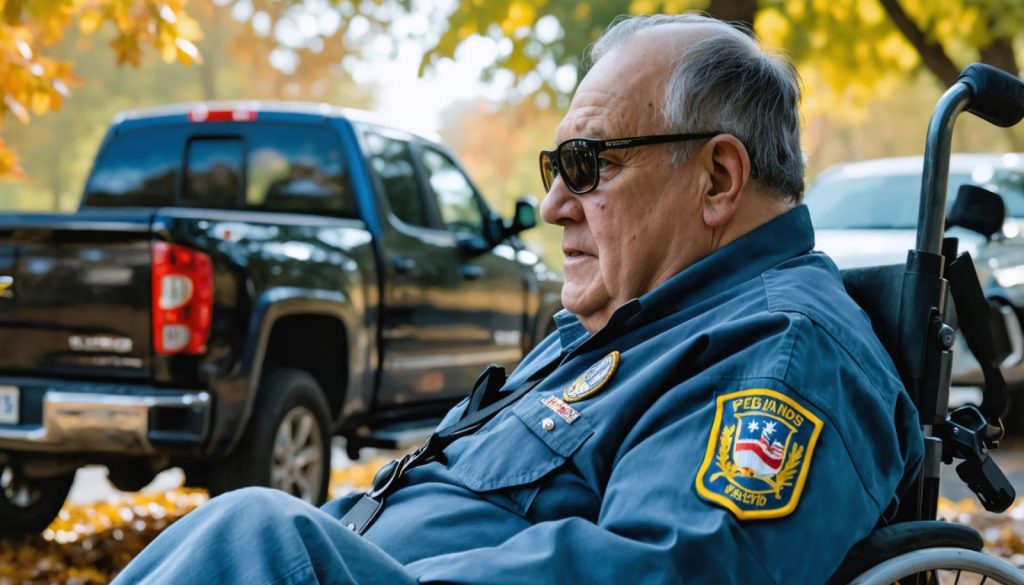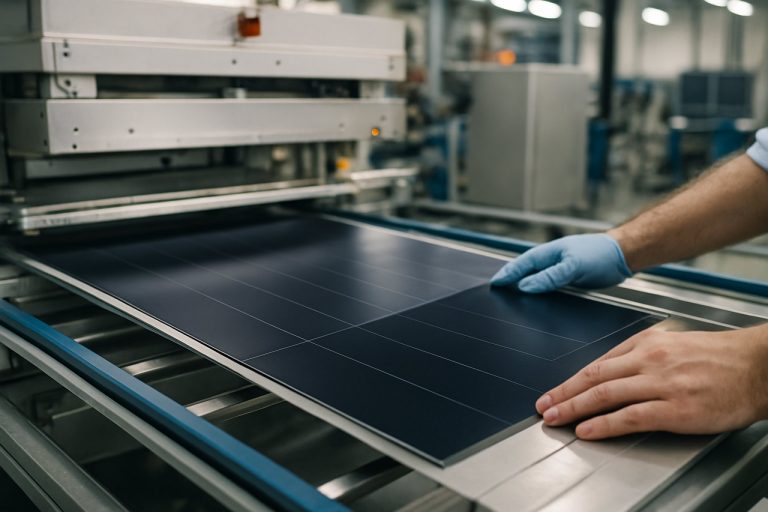
- The Cobra Utensil Holder, developed at the Richmond VA Medical Center, is a transformative tool aiding Veterans with debilitating injuries in daily tasks like eating.
- Designed by the VA’s Assistive Technology Program, it offers a universal, ambidextrous solution compatible with standard utensils.
- The innovation addresses the limitations of traditional adaptive utensils, featuring adjustable slots for personalized use.
- The device embodies the VA team’s commitment to marrying technology with empathy, helping restore dignity and independence to Veterans.
- The Richmond team’s broader vision includes applications beyond healthcare, highlighting their extensive design capabilities and technical expertise.
- The Cobra Utensil Holder underscores the impact of compassionate innovation, redefining the narrative of disability through resilience and support.
The glow of promise radiates from a 3-D printer humming quietly in the corner of the Richmond VA Medical Center. Here, a team of innovative minds has crafted a simple tool with profound potential—the Cobra Utensil Holder. It may seem an unassuming creation at first glance, but this ingenious device is set to transform lives in ways that reverberate beyond its compact, nylon frame.
Everyday activities that many of us perform thoughtlessly—picking up a fork, raising a spoon—can present immense challenges for Veterans grappling with debilitating injuries. For these individuals, the successful execution of such tasks can restore a sense of dignity that injury or illness has threatened to steal away. Enabling this transition from limitation to newfound ability is the driving force behind the Veterans Affairs’ Assistive Technology Program, where innovation meets compassion.
When a former occupational therapist sought a solution for a Veteran struggling with traditional adaptive utensils, the Assistive Technology team was ready to listen. Typical off-the-shelf options failed due to unwieldy angles that only compounded the difficulty. What emerged from this challenge was the Cobra Utensil Holder, designed through a collaboration of therapists and clinical rehabilitation engineers spearheading from the Richmond Office of Advanced Manufacturing. Its beauty lies in its versatility—a universal, ambidextrous cuff that embraces any standard spoon or fork, allowing the utensil to be used naturally and intuitively.
With the Cobra Utensil Holder, burdens lighten; the impossible becomes possible. Veterans can now enjoy meals with newfound independence, the holder’s adjustability and simplicity seamlessly integrating into their routines. They can switch utensils effortlessly, adapting on the fly to the demands of varied dining contexts. The holder’s distinct design, featuring innovative slots to alter angles and accommodate different needs, sets it apart from existing solutions.
The device epitomizes the expertise and empathy coursing through the veins of the Assistive Technology team. Each feedback loop, each iterative prototype, was not just about crafting a tool, but about crafting hope—a tangible expression of trust between Veterans and those committed to their care.
The technology’s journey from an idea to a patented innovation required sense-sharpening patience and dedication, shepherded along by people who see possibilities where others see obstacles. It’s not just the Assistive Technology team’s meticulous digital engineering and advanced 3-D production that shines here; it’s their steadfast commitment to redesigning everyday life for Veterans in more inclusive and empowering ways.
Beyond the Cobra Utensil Holder, the Richmond team’s vision stretches wide. Their vault of technical knowledge and design capability means the potential for change is vast. Whether they’re printing boiler vent caps or revolutionizing the way radiology interfaces with hospital infrastructure, their innovations ripple outward, touching the broader community.
This spirit of service and creativity drives the VA’s Richmond branch, reminding us all that innovation is not solely the realm of scientists and academicians—it lives in the heart of those who have woven care into the fabric of their daily pursuits. At its core, the journey of the Cobra Utensil Holder is a reflection of what happens when technology meets the human touch, elevating lives every day in its silent, steadfast way.
The work done by visionaries like Brian Burkhart, Melissa Oliver, Seth Hills, and John Miller exemplifies a dynamic model of technological excellence meeting real-world need. For Veterans longing for autonomy, tools like the Cobra Utensil Holder are life-altering, unfolding a new narrative where they’re not so much defined by their disabilities as they are by the resilience and support that surrounds them.
Revolutionizing Independence: How 3D Printing Transforms Lives
Introduction
The story of the Cobra Utensil Holder underscores the incredible impact assistive technology can have on individuals with disabilities. Designed by the Richmond VA Medical Center’s Assistive Technology team, this innovative tool allows veterans to regain their independence, particularly during meals. While the source material highlights the device’s creation and effectiveness, there is much more to explore regarding the broader implications of such innovations, the technology behind them, and their potential market impact.
Understanding the Technology
The Cobra Utensil Holder leverages advanced 3D printing technology. Developed from a durable nylon material, the holder provides a lightweight yet sturdy base for utensils, which ensures both flexibility and strength. The use of 3D printing allows for rapid prototyping, enabling swift iterations that respond directly to user feedback.
Key Benefits and Features
– Versatility: The universal, ambidextrous design can accommodate both left-handed and right-handed users.
– Customization: The holder includes slots to adjust the angle, meeting varied user needs and improving comfort.
– Ease of Use: It’s specifically crafted for simplicity, eliminating the complexity seen in traditional adaptive utensils.
– Cost-Effectiveness: Compared to custom-made solutions, the 3D printing process can often result in lower costs, making these tools more accessible.
Real-World Impact
For veterans with physical impairments, the Cobra Utensil Holder is more than just a tool; it’s a step towards reclaiming self-sufficiency. By enabling easier meal-time activities, the device enhances the user’s quality of life, contributing positively to mental health and emotional well-being. This improvement is crucial for those who may feel marginalized due to their disabilities.
How-To Steps for Implementing Similar Solutions
1. Identify the Need: Collaborate with occupational therapists to understand the specific needs of users.
2. Design Prototyping: Utilize 3D modeling software to create initial designs.
3. User Feedback Loop: Implement a feedback system from real users to refine the design continually.
4. Production: Use 3D printing for rapid prototyping and small-batch manufacturing.
5. Distribution: Partner with healthcare providers to supply the device to those in need.
Market Forecast & Industry Trends
The market for assistive tools is growing rapidly, with an increasing emphasis on personalized, adaptive technologies. The global assistive technology market is projected to expand significantly, fueled by advancements in 3D printing, AI integration, and increased demand for accessible solutions.
Security & Sustainability
While 3D printing offers numerous environmental benefits, such as reducing waste through additive manufacturing, it’s essential for manufacturers to consider sustainable materials and recycling options for these devices. Additionally, ensuring the secure handling of sensitive design data is crucial, particularly when collaborating with healthcare institutions.
Pros & Cons Overview
Pros:
– Enhances independence and quality of life.
– Customizable and adaptable for diverse needs.
– Potential cost savings over traditional adaptive tools.
Cons:
– Initial costs associated with 3D printer setup.
– Limited by material choice and current 3D printing capabilities.
The Bigger Picture
The development of items like the Cobra Utensil Holder reflects a broader movement toward integrating technology with empathy-driven healthcare solutions. As technology continues to advance, so will the potential for creating tools that bridge the gap between limitations and possibilities.
Actionable Recommendations
– Veterans and individuals with disabilities: Explore available assistive technologies and reach out to healthcare providers for more information.
– Healthcare providers: Stay updated on technological advancements to offer the best solutions possible.
– Technology innovators: Focus on creating adaptive technologies that are customizable, affordable, and environmentally friendly.
Continue exploring other ground-breaking healthcare solutions by visiting the Veterans Affairs website and stay informed about the latest innovations reshaping rehabilitation services.



